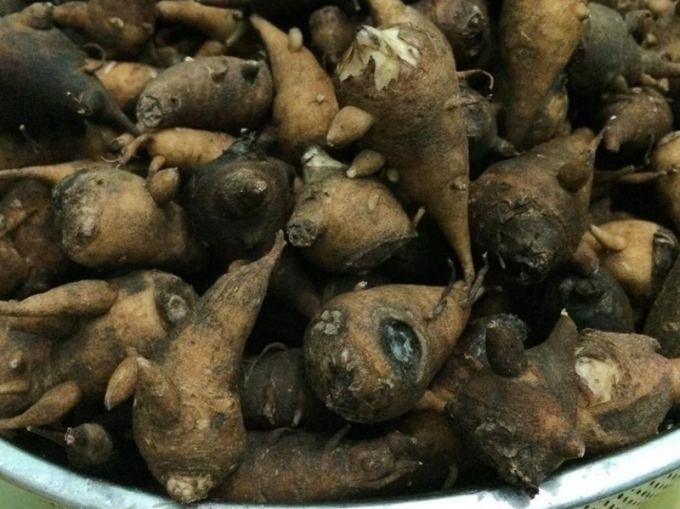After eating a large amount of water chestnuts instead of rice, a 56-year-old woman was hospitalized due to nausea, numbness, and low blood pressure. Doctors diagnosed her with aconite poisoning from the water chestnuts.

Previously, the patient had eaten a small amount of water chestnuts without experiencing any unusual symptoms. This time, eating more caused her to show signs of serious poisoning.
At the 108 Military Central Hospital on April 10, doctors determined that the patient was poisoned by aconitine - a strong poison found in water chestnuts. After treatment, the patient responded well and recovered.
Chinese water chestnut (also known as Chinese yam or Chinese yam) is a familiar medicinal herb in traditional medicine, but it contains aconitin - an extremely dangerous poison. If processed or used incorrectly, this substance can cause arrhythmia, hypotension, cardiogenic shock, and even death.
Dr. Nguyen Ha Anh, Department of Dermatology, warns that symptoms of water chestnut poisoning such as nausea, numbness of the lips, numbness of the limbs, and low blood pressure, can easily be mistaken for anaphylactic shock, a severe allergic reaction that often occurs rapidly upon first exposure to a foreign agent. Anaphylactic shock responds well to adrenaline, while aconitine poisoning requires a completely different treatment regimen.
Medical experts recommend not to use water chestnut or any other highly toxic herbs on your own. Processing by word of mouth (soaking in alcohol, cooking porridge, decocting medicine...) without understanding the dosage and detoxification method poses great risks. Some medicinal herbs are only safe when processed properly and used in strictly controlled doses. Before using any herbs, people should consult a traditional medicine doctor, pharmacist or qualified medical staff.
Signs of poisoning to watch out for include: nausea, dizziness, numbness in the limbs, abdominal pain, anxiety, palpitations, difficulty breathing, and low blood pressure. If you experience these symptoms, seek medical attention immediately. Do not self-medicate or delay hospitalization, as the disease can progress rapidly and become dangerous in a short period of time.
HQ (according to VnExpress)